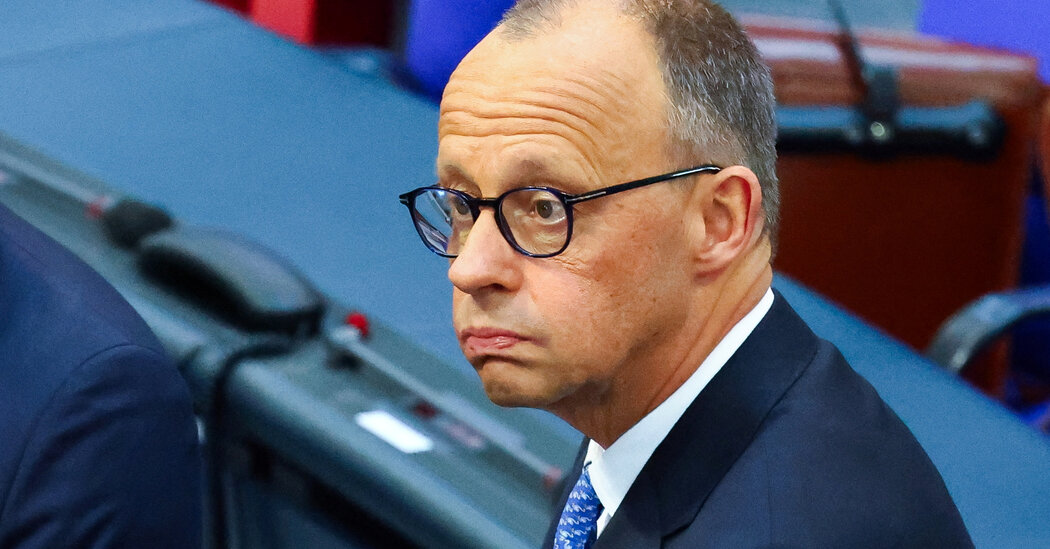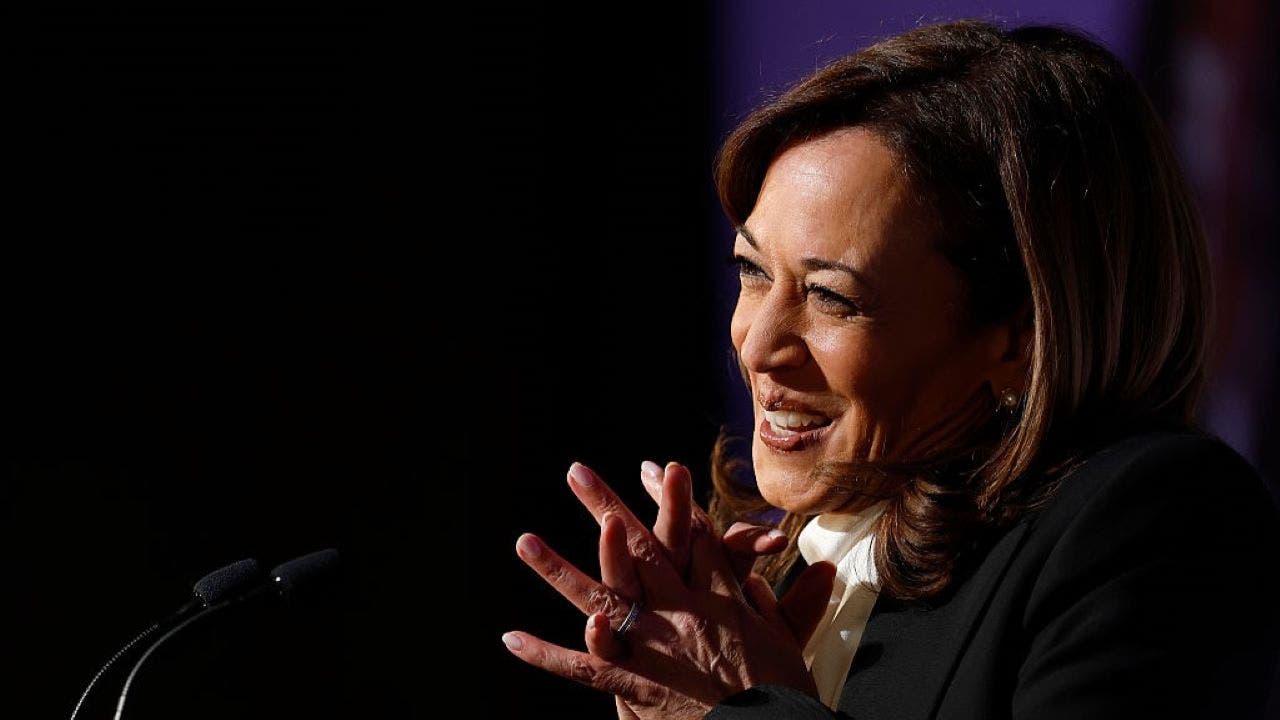In a historic first, conservative leader Friedrich Merz’s bid to become Germany’s 10th chancellor since the Second World War failed by six votes in parliament on Tuesday, an unexpected defeat.
A candidate for chancellor has never failed to win on the first ballot since the end of the war. The loss triggered a stock market slide: the DAX, the index of major German companies, was down 1.8 per cent following the vote.
Merz needed a majority of 316 out of 630 votes. He only received 310 votes — well short of the 328 seats held by his coalition, which is already one of the slimmest postwar majorities.
Merz’s coalition, formed after an election in February, is led by his centre-right Christian Democratic Union (CDU). They are joined by Bavarian sister party, the Christian Social Union, and the centre-left Social Democrats, outgoing chancellor Olaf Scholz’s party.
Nine lawmakers abstained while 307 voted against Merz, said Julia Kloeckner, president of Germany’s lower house of parliament, the Bundestag.
The Bundestag has 14 days to elect a candidate with an absolute majority, and another vote was scheduled for Tuesday afternoon.
Scholz remains in a caretaker role until a new chancellor takes over.
‘An annoying process’
The setback comes with Germany set to participate in a host of summits next month, involving the European Union in Brussels, NATO at the Hague, Netherlands, and the Canada-hosted G7 summit in Kananaskis, Alta., between June 15-17.
Germany is the second-biggest supplier of military aid to Ukraine after the United States, and in defence spending, it ranks fourth in the world, according to the Stockholm International Peace Research Institute, which studies trends in global military expenditures.
“The world is in turmoil. Europe needs a strong Germany,” Carsten Linnemann, the secretary general of the Christian Democrats, told reporters after Merz’s loss. He said a second vote should come soon.
“We can’t wait for days now, we need clarity quickly.”

Germany has the continent’s biggest economy and serves as a diplomatic heavyweight. The new chancellor’s portfolio would include the war in Ukraine and the Donald Trump administration’s trade policy on top of domestic issues, such as Germany’s stagnant economy and the rise of a far-right, anti-immigrant party.
Merz offered surprisingly blunt comments about the state of the relationship with the U.S. after February’s election, saying, “it is clear that the Americans, at least this part of the Americans, this administration, are largely indifferent to the fate of Europe.”
Besides ramping up defence spending, Merz’s coalition has pledged to spur economic growth, take a tougher approach to migration and catch up on long-neglected modernization.
Merz can run again, but other lawmakers can also throw their hats in the ring. There is no limit to the number of votes that can be held within the two-week period.
If Merz or any other candidate fails to get that majority within the 14 days, the constitution allows for the president to appoint the candidate who wins the most votes as chancellor, or to dissolve the Bundestag and hold a new national election.
Johann Wadephul, the designated next foreign minister, said he was confident Merz would ultimately prevail.
“It is an annoying process, but in a parliamentary democracy, in a liberal country, this is unfortunately one of the scenarios that you have to be prepared for,” he told reporters.
Sunday exit polls in Germany show opposition leader Friedrich Merz’s Christian Democratic Union and its Bavarian sister party, the Christian Social Union, were on course for a victory in a national election. Meanwhile, Alternative for Germany (AfD) nearly doubled its support, the strongest showing for a far-right party since the Second World War. Whether Merz will need one or two partners to form a coalition will depend on how many parties get into parliament.
Volker Resing, who wrote the recent biography Friedrich Merz: His Path to Power, expressed surprise at the turn of events.
“It shows how fragile the coalition’s situation is and that some lawmakers are prepared to spread uncertainty — that’s a warning signal,” Resing told The Associated Press.
Resing said that if Merz gets elected in the second round, then everything will be fine and people may soon forget about this hiccup. But “for now everything is wide open,” he added.
Far-right AfD pans ‘weak’ coalition
Alice Weidel, co-leader of the far-right, anti-immigrant Alternative for Germany party, slammed Merz’s failure as proof that his coalition has a “weak foundation.”
AfD is the biggest opposition party in Germany’s new parliament after it placed second in the February elections. Despite its historic gains, it was shut out of coalition talks due to the so-called “firewall” that mainstream German political parties have upheld against co-operating with far-right parties since the end of the war.
Last week, the German domestic intelligence service said it has classified AfD as a “right-wing extremist” organization, making it subject to greater and broader surveillance.
The domestic intelligence service’s measure does not amount to a ban of the party, which can only take place through a request by either of parliament’s two chambers, or the federal government through the Federal Constitutional Court.
Merz has not commented publicly on the intelligence service’s decision.
The U.S. administration has bashed Germany repeatedly since Trump’s inauguration in January. Trump, who has German roots, had often expressed his dislike of former chancellor Angela Merkel — who led the CDU — during his first term in office.
U.S. Vice-President JD Vance, during the Munich Security Conference in February, assailed the “firewall” and later met with Weidel, instead of Germany’s leader, Scholz.
As well, Trump ally Elon Musk hosted a chat with Weidel that he livestreamed on X earlier this year to amplify her party’s message.
germanys-friedrich-merz-suffers-stunning-defeat-on-vote-to-become-chancellor
















Leave a Reply